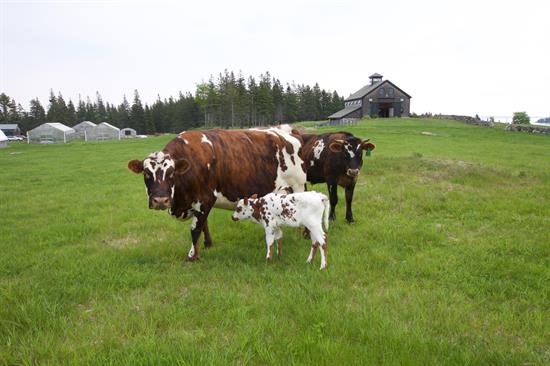Press Releases
VIDEO: Pingree Pushes USDA Secretary For Status of Organic Livestock Rule Implementation
Washington,
October 8, 2021
Tags:
Food and Agriculture
On Thursday, Congresswoman Chellie Pingree (D-Maine) questioned U.S. Department of Agriculture (USDA) Secretary Tom Vilsack about the agency’s timetable for reinstating the Organic Livestock and Poultry practice rule, which was withdrawn during the Trump administration. Pingree, a long-time organic livestock farmer, stressed the importance of meaningful, well-defined standards for organic livestock and poultry. Click here to watch Congresswoman Pingree participate in the hearing. A full transcript is available below. Click here to watch a full recording of the hearing. CONGRESSWOMAN PINGREE: Thank you, Mr. Chair, and thank you, Mr. Secretary, for being with us today. I really appreciate your attention to all this. I'm glad the chairs decided to have this hearing. I'm going to try to get in two questions, so I'll see if I can be quick. I know organic agriculture isn't the primary focus of today's hearing, but it's just so important to my district. During your previous time as a Secretary, you finalized the Organic Livestock and Poultry Practices rule, and I was disappointed to see that the Trump administration withdrew that. In June, you announced the USDA plans to begin rule making on these standards again. I just want to reiterate how essential it is to have meaningful, well-defined standards for organic livestock and poultry. Could you give us a little update on the progress? And I know that there is a legal challenge going on, but I'm wondering if you could start the rulemaking even with the litigation on going. SECRETARY VILSACK: We've actually started that process. And we anticipate and expect an opportunity to get what we are working on to our general counsel for review in the very near future into OMB, hopefully by the end of this year and hopefully seeing some progress in terms of publication in 2022. We understand and appreciate the need to get this done. And that in the Origin of Livestock rule are two things that we are prioritizing. PINGREE: Right. Well, again, I don't have to remind you that having standards that really recognize the inputs that people have who are doing what they need to do as organic producers is just so critical and really is a challenge to the marketplace right now. We're certainly talking a lot about meat processing today, and I just want to focus a little bit on the small scale meet processors. I appreciate the attention to increasing resilience and diversity in meat and poultry processing, and I know that you've given that renewed interest, including the $500 million investment that's been announced to support new competitive entrance into the sector. And certainly, you've talked a little bit about today, but I just want to focus more on the smaller scale producers, including help for existing small scale producers to expand and upgrade their infrastructure. What are the USDA's plans for supporting small processors within the $500 million investment, will support for the existing federal inspected small processors to upgrade their facilities be included in the program? That seems like somewhat of an oversight to me. VILSACK: Well, I think the reason why we are focused on new processing capacity with the 500 million is because you all have identified additional resources available to small and very small processing facilities that wish to modernize. That's the grant program that I alluded to earlier, roughly $55 million. We received 240 some applications for those resources. These are $200,000 grants that will enable those small producers if they wish to upgrade their system so that they can qualify for interstate transactions, which would expand their market. And so, we want to see where that goes, we want to see what the demand is. In addition, we obviously as well have the $100 million that's been provided to reduce overtime cost to help small and very small producers processing facilities pay for federal inspection and for their inspectors. That has been a very popular effort, almost 1,900 operations are taking advantage of that. So those two areas are areas that we are providing help and assistance. The $500 million will see essentially how the $55 million operates and see if there's additional demand. If there is, we can make some adjustments, or we can take a look at additional resources in that processing grant program. PINGREE: Right. And I really appreciate how important that is and how big of a roadblock this is for so many producers who are finding increased interest in the market—a lot of people want to buy locally raised meat, and they want to buy it from farms that are using sustainable methods—but there is such a backlog in the processing. I know I don't have to tell you that, but it's just a huge issue in our region. I'm just going to clarify because I think I heard you right, and I know one grant can't do everything, but under the Meat and Poultry Inspection Readiness Grants, if you're already a federally inspected processor, but you want to expand your capacity, you currently aren't eligible. Is that correct? VILSACK: I think that is correct, but I could be corrected on that. But I believe that's correct. The goal of this was to try to give people the ability to expand their capacity and expand their market opportunities. PINGREE: Right. Okay. I'll clarify that with you and I appreciate your answers, and I'm out of time. But thank you for being with us here today. ### |

